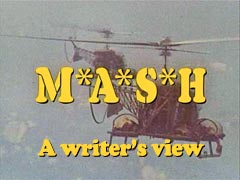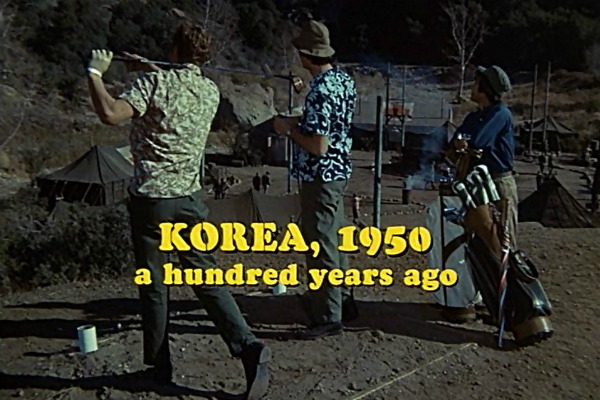First, cover art for my next collection of essais, Style is the Rocket:
Featuring the title piece and a Bunch of Other Cool Stuff.
The Fiction of Tom Simon & the Lies of H. Smiggy McStudge

First, cover art for my next collection of essais, Style is the Rocket:
Featuring the title piece and a Bunch of Other Cool Stuff.
My own serial in (occasional) progress, which I depreciatingly call ‘the Orchard of Dis-Pear’ and hope to resume work on some time soon, was actually inspired partly by my revisiting of M*A*S*H. It was the idea of the three double acts that sired Where Angels Die upon my imagination; though my serial will have, I imagine, nothing like the felicity and depth of humour that M*A*S*H had. We cannot all be Larry Gelbart, but we can at least be ourselves.
In Where Angels Die, the three double acts are (1) the two paladin/exorcists, Revel and the Badger; (2) Baron Vail and his steward Greyhand; (3) the chief Paladin and Angel at Angel Keep, Master Herison and Lady Swan, whom you have not yet met. They bear some resemblance to the duos of Hawkeye–Trapper, Col. Blake–Radar, and Frank–Hot Lips, but of course their stories, and the kind of stories to be written about them, are quite different.
In other news, when I simply cannot brain at all, I have occasionally been reduced to watching an episode of Gilligan’s Island: after which the grey matter rebels, and insists upon either functioning or going to sleep – either of which is an improvement. Gilligan is every bit as stupid as I recall from my childhood; it is deliberately stupid, but endearingly stupid, an art form that has since been lost and may well remain so. I could say that Gilligan’s Island is the dumb blonde of American sitcoms. However, it has redeeming points – chiefly in the fine comic performances of the actors, above all Bob Denver and Jim Backus – and two areas of genuine excellence. For one, it was a fertile vehicle for parody; in its three-year run, the show did sendups of every genre of film and popular fiction under the sun, from Westerns and monster movies to Hamlet and The Count of Monte Cristo. For another, the incidental music was far superior to the show itself; it was only on this latest revisit that I fully appreciated just how good the score was (excluding the idiotic theme song, which was composed by another hand). From the credits, I discovered that the score was written by an up-and-coming young composer named Johnny Williams.
Yes, that John Williams. This may be old news to everybody else, but my mind was sufficiently boggled; and somehow I find myself fonder of Williams than I was before.

M*A*S*H: A writer’s view. First in a series.
The Korean War is still not a hundred years in the past, though it is long enough now that the surviving veterans of that war are becoming rather thin on the ground. But even in 1972, when M*A*S*H went on the air, the series format for storytelling was much older than a hundred years. Before television, there was radio; before radio, there were the newspapers and magazines, and the ‘penny dreadfuls’ that kept every literate child supplied with lurid adventure. If you go back far enough, you can trace the roots of the form all the way to the Odyssey; which, come to think of it, would make a fine TV series in its own right.

Opening titles, ‘M*A*S*H: The Pilot’
The smash TV series, so to speak, of 1836 was The Pickwick Papers: Mr. Pickwick and his comic manservant, Sam Weller, were the talk of England for a year and a half, and soon after in every country where their serialized adventures were reprinted or translated. Their creator, Charles Dickens, went on to become the acknowledged giant of Victorian letters, and single-handedly created a kind of literary celebrity that has had none but pale imitations since; though some of Dickens’ inventions, like the author’s reading, plague us still.
Nowadays, after its century-long detour through the mass media, the serial story is having something of a revival in print. With the rise of ebooks, the length of publishable stories is no longer limited by the demands of commercial printing. It takes a certain length of story to fill enough pages to justify the cost of printing book covers, and above another certain length, the book becomes too thick for the binding to hold together without inordinate expense. The serial, in its revived form, can transgress both those limits. Individual episodes can be as short as short stories, yet be profitable to sell individually. A whole series can be as long as the ‘binge reader’ likes and the author can supply. There was no end to the old tales and ballads about Robin Hood; The Count of Monte Cristo, by Dickens’ great French counterpart, runs a tidy half-million words or so. Pickwick itself makes a long book, but it is a book of short episodes; not a picaresque, as it is sometimes called by blinkered literary critics, but an episodic series – in fact, a situation comedy.
There is no reason why situation comedy (or any other kind of story) should be restricted to one medium. Some of the best work in that field was done by P. G. Wodehouse, whose most famous creations, Jeeves and Bertie Wooster, appeared in print, in short story and novel form, over a span of nearly sixty years. Some stories, it is true, are suited for one particular medium. Visual spectacle, whether in the grand form of colossal special effects or the modest form of slapstick, requires a visual medium – film or television. Close introspection, the detailed examination of a character’s thoughts and emotions, lends itself better to written work: which has led some misguided souls to suppose that only the solemn psychological novel is worthy of being regarded as literature. But there is a wide range of stories that can be told in written or dramatic form, according to taste and budget. The story of character need not be the soul-searching or navel-gazing of a single protagonist; it can as easily arise from the interactions between several more or less fleshed-out characters. And that kind of story can often be told equally well in whatever medium one prefers.
M*A*S*H is just that kind of story; or rather, that kind of story cycle. [Read more…]
I recently reconnected with my old friend Bruce Sheane, who was his mother’s primary caregiver when she was dying of cancer about 15 years ago. I wasn’t in his position, thank God, but the endless trainwreck with lawyers and courts and powers of attorney was draining in a different way. I had a good talk with Bruce about the situation, and about my recent spell of slug-brain syndrome. I said that my brain had been in crisis mode so long, now that the crisis was over it had no idea what to do with itself and I was just sitting there stunned. He said that was exactly what he went through; which is reassuring.
Since I cannot brain in any effective way (I can’t even speech the parts of identify, let alone them in put correct the order), I have been binge-watching old TV shows with my writer antennae activated, and seeing what I can learn. In particular I have been watching a lot of M*A*S*H, and have picked up some interesting (to me) ideas from it. I’m thinking of setting some of them down in the form of blog posts, just to keep my hand in while the brain de-stuns itself (and the estate gets sorted out).
What do the Loyal 3.6 think?
Edward Feser, the distinguished Aristotelian–Thomist philosopher, has posted an excellent commentary on C. S. Lewis’s brilliant (and under-read) essay ‘Transposition’. It is hardly too much to say that Lewis’s essay describes one of the fundamental tools of thought, and Feser does much to make clear why this is necessarily so.
Lewis’s original essay:
Feser’s commentary:
A taste of Feser:
By “transposition,” Lewis has in mind the way in which a system which is richer or has more elements can be represented in a system that is poorer insofar as it has fewer elements. The notion is best conveyed by means of his examples. Consider, for instance, the way that the world of three dimensional colored objects can be represented in a two dimensional black and white line drawing; or the way that a piece of music scored for an orchestra might be adapted for piano; or the way something said in a language with many words at its disposal might be translated into a language containing far fewer words, if the relevant latter words have several senses.
As these examples indicate, in a transposition, the elements of the poorer system have to be susceptible of multiple interpretations if they are to capture what is contained in the richer system. In a pen and ink drawing, black will have to represent not only objects that really are black, but also shadows and contours; white will have to represent not only objects that really are white, but also areas that are in bright light; a triangular shape will represent not only two dimensional objects, but also three dimensional objects like a road receding into the distance; and so on….
You cannot properly understand a transposition unless you understand something of both sides of it. He asks us to consider a child born to a woman locked in a dungeon, who tries to teach the child about the outside world via black and white line drawings. Through this medium “she attempts to show him what fields, rivers, mountains, cities, and waves on a beach are like” (p. 110). For a time it seems that she is succeeding, but eventually something the child says indicates that he supposes that what exists outside the dungeon is a world filled with lines and other pencil marks. The mother informs the child that this is not the case:
And instantly his whole notion of the outer world becomes a blank. For the lines, by which alone he was imagining it, have now been denied of it. He has no idea of that which will exclude and dispense with the lines, that of which the lines were merely a transposition… (Ibid.)
(Though Lewis does not note it, the parallel with Plato’s Allegory of the Cave is obvious.)
… As Lewis points out, the notion of transposition is useful for understanding the relationship between mind and matter and the crudity of the errors made by materialists.

An essay by G. K. Chesterton, as collected in All I Survey, reproduced here in honour of St. George’s Day.
The disadvantage of men not knowing the past is that they do not know the present. History is a hill or high point of vantage, from which alone men see the town in which they live or the age in which they are living. Without some such contrast or comparison, without some such shifting of the point of view, we should see nothing whatever of our own social surroundings. We should take them for granted, as the only possible social surroundings. We should be as unconscious of them as we are, for the most part, of the hair growing on our heads or the air passing through our lungs. It is the variety of the human story that brings out sharply the last turn that the road has taken, and it is the view under the arch of the gateway which tells us that we are entering a town.
Yet this sense of the past is curiously patchy among the most intelligent and instructed people, especially in modern England. Among a hundred such scraps and snippets, I saw this morning a literary competition in an exceedingly highbrow weekly, a prize being awarded for a conversation between a modern interviewer and St. George. And I was struck by the fact that clever, and even brilliant, contributors missed much of the point, even about the modern interviewer, by missing the point about the ancient saint. [Read more…]

(Hat tip to Wendy S. Delmater.) [Read more…]

These philosophers, like so many modern philosophers, do not possess the patience to see what they are taking for granted. Have you ever seen a fellow fail at the high jump because he had not gone far enough back for his run? That is Modern Thought. It is so confident of where it is going to that it does not know where it comes from.
—G. K. Chesterton, The Uses of Diversity

The Bible tells us to love our neighbours, and also to love our enemies; probably because they are generally the same people.
—G. K. Chesterton, The Uses of Diversity

I have been reading G. K. C.’s autobiography, and here and there having flashes of fellow-feeling where I least expected them. It is common enough with me to feel that I understand something that Chesterton understands, but an entire surprise to find that one of those things, even in small part, should be William Butler Yeats.
Here one master of English rhetoric remarks upon another, with, I believe, exquisite and approving justice:
I can still remember old Yeats, that graceful greybeard, saying in an offhand way about the South African War, ‘Mr. Joseph Chamberlain has the character, as he has the face, of the shrewish woman who ruins her husband by her extravagance; and Lord Salisbury has the character, as he has the face, of the man who is so ruined.’ That style, or swift construction of a complicated sentence, was the sign of a lucidity now largely lost. You will find it in the most spontaneous explosions of Dr. Johnson. Since then some muddled notion has arisen that talking in that complete style is artificial; merely because the man knows what he means and means to say it. I know not from what nonsense world the notion first came; that there is some connection between being sincere and being semi-articulate. But it seems to be a notion that a man must mean what he says, because he breaks down even in trying to say it; or that he must be a marvel of power and decision, because he discovers in the middle of a sentence that he does not know what he was going to say. Hence the conversation of current comedy; and the pathetic belief that talk may be endless, so long as no statement is allowed to come to an end.
—G. K. Chesterton, Autobiography
| S | M | T | W | T | F | S |
|---|---|---|---|---|---|---|
| 1 | 2 | 3 | 4 | 5 | 6 | 7 |
| 8 | 9 | 10 | 11 | 12 | 13 | 14 |
| 15 | 16 | 17 | 18 | 19 | 20 | 21 |
| 22 | 23 | 24 | 25 | 26 | 27 | 28 |
| 29 | 30 | |||||
Abyss & Apex
A webzine of science fiction & fantasy
Edited by Wendy S. Delmater
Sci Phi Journal
A journal about science fiction and philosophy
Edited by Jason Rennie
SuperversiveSF
Science Fiction for a more Civilized Age
The Passive Voice
David P. Vandagriff
Author Earnings
Hugh Howey & Data Guy
Let’s Get Digital
David Gaughran
J. A. Konrath
Jimmy Akin
Mary Catelli
Monster Hunter Nation
Larry Correia
Sarah Dimento
Edward Feser
The TOF Spot
Michael Flynn
Welcome to Arhyalon
L. Jagi Lamplighter
Kairos
Brian Niemeier
John C. Wright
Copyright © 2025 · Prose on Genesis Framework · WordPress · Log in
Recent Comments